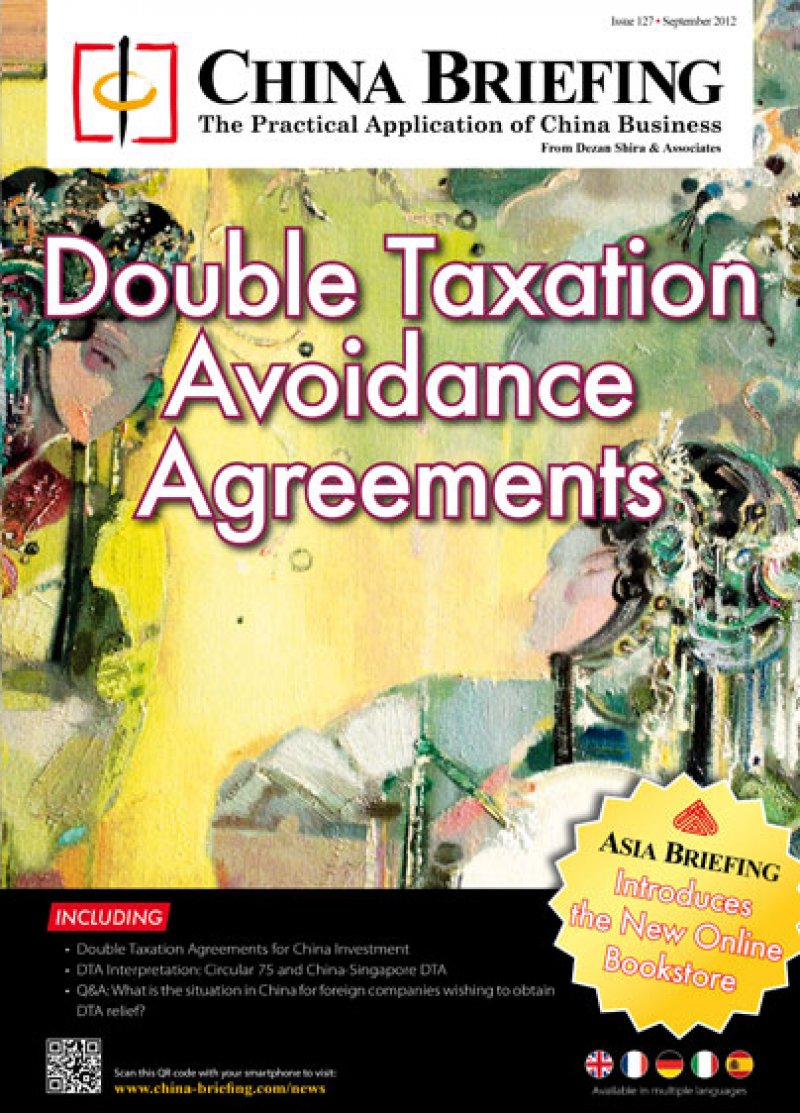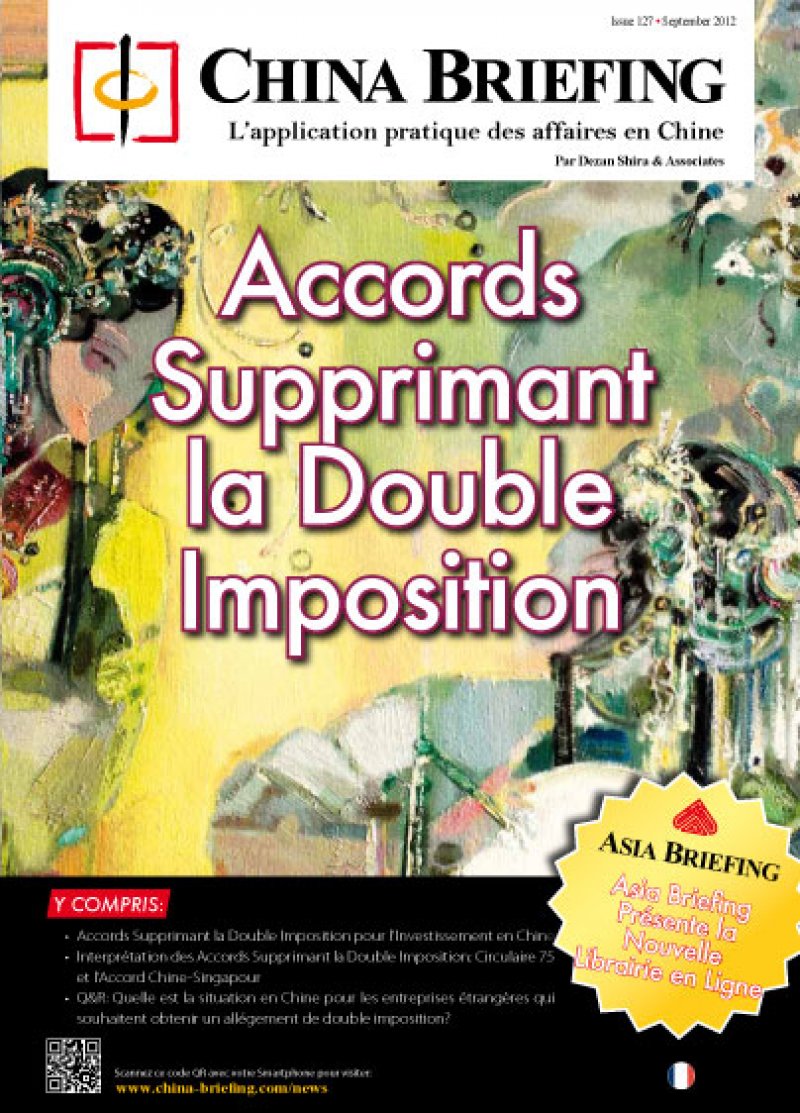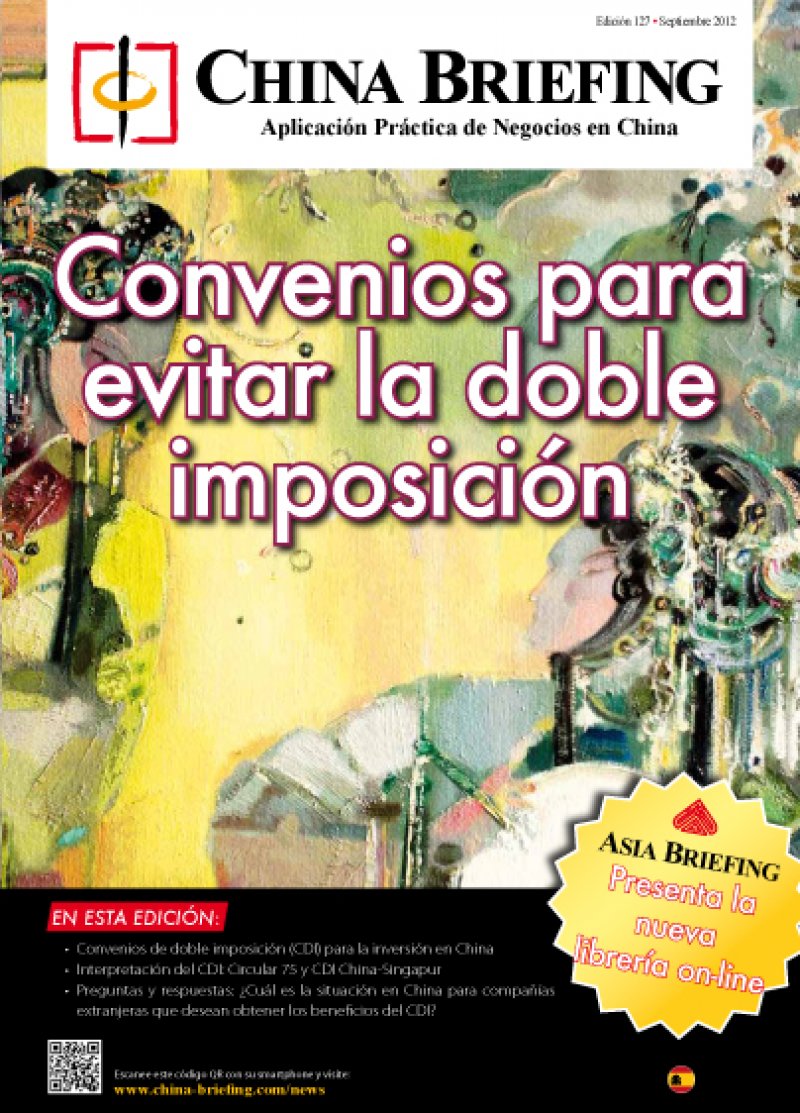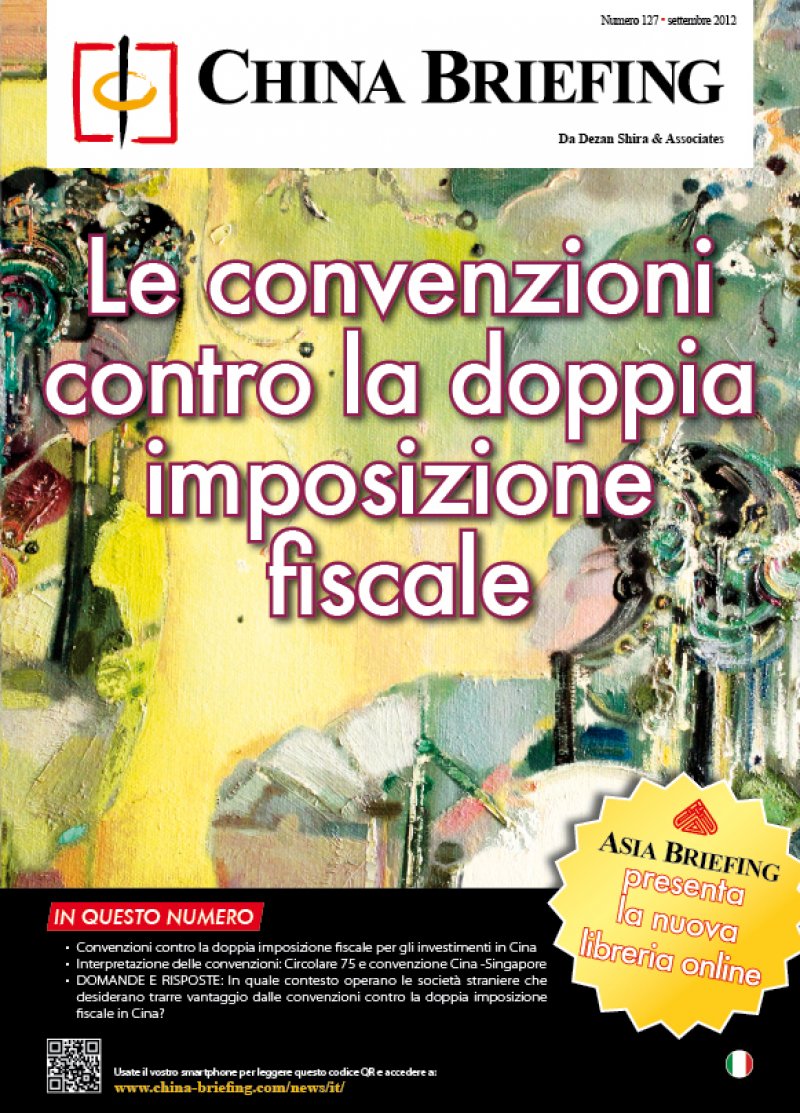
Our collection of resources based on what we have learned on the ground
Resources
magazine
Double Taxation Avoidance Agreements

- September 2012
- Members Access
The technical language surrounding double taxation, including the âsubstance over formâ principle, âbeneficial ownerâ status, and the concepts of âpermanent establishmentâ and âtax residency,â make the area a c...
magazine
Doppelbesteuerungsabkommen

- September 2012
- Members Access
Die technische Sprache, die das Thema Doppelbesteuerung umgibt, macht das Gebiet für Laien zu einer Herausforderung. In dieser Ausgabe von China Briefing sollen einige Begriffe wie das âPrinzip der wirtschaftlichen Betrachtungsweiseâ, â...
magazine
Accords Supprimant la Double Imposition

- September 2012
- Members Access
Lorsque nous avons commencé des recherches sur ce numéro de China Briefing, nous avons pratiquement donné une série de chiffres: 601, 30, 698 ... Il est rapidement devenu évident que ces circulaires fiscales publiées par lâAd...
magazine
Convenios para evitar la doble imposición

- September 2012
- Members Access
Al inicio de la investigación para esta edición del China Briefing, nos dieron simplemente una serie de números: 601, 30, 698... De pronto, fue evidente que estas circulares de la Administración Fiscal Estatal tratan los aspectos principa...
magazine
Le convenzioni contro la doppia imposizione fiscale

- September 2012
- Members Access
Il contesto legale della doppia imposizione in Cina è in continua evoluzione. Il linguaggio tecnico che permea lâargomento rende tuttavia difficile ai non addetti ai lavori districarsi sul campo; si pensi ad esempio al principio della âp...
Q&A
What are the different requirements for claiming treaty benefits in China?

- September 2012
- Members Access
The requirements for claiming treaty benefits in china differ on the base of the type of income: benefits from passive income must receive approval (which takes 20-50 days and is valid for three calendar years), while benefits from active income shou...
Q&A
What are the four categories that summarize the legal framework in regards to th...

- September 2012
- Free Access
The development of double taxation agreements for China investment by summarizing the legal framework are in four categories: Anti-avoidance foundations Qualifying as beneficial owner Claiming treaty benefits Reporting offshore transactions
Q&A
How do China?s anti-avoidance foundations affect taxes?

- September 2012
- Free Access
China’s general anti-avoidance rules (GAAR) were first introduced under the 2008 Corporate Income Tax (CIT) Law which provides that, where an enterprise’s taxable income is reduced due to its implementation of “arrangements that do ...
Q&A
What is the most common difficulty for Hong Kong clients when applying to avail ...

- September 2012
- Members Access
The most common difficulty for our clients in Hong Kong when applying to avail of treaty benefits under DTAs between China and other countries is to obtain the tax resident certificate for their Hong Kong entity, especially when the Hong Kong en...
Q&A
Have the Double Taxation Avoidance Agreements (DTA) become more stringent and sp...

- September 2012
- Free Access
Beginning in 2010, stronger, more specific regulations began to come into effect, and companies began to have to apply for relief under DTAs; for example, in order to qualify for DTA relief from withholding tax on dividends, interest and royalties, t...
Q&A
What is a permanent establishment (PE)?

- September 2012
- Free Access
A permanent establishment (PE) can be a place of management, a branch, an office, a factory, etc. or certain activities, such as a building site or construction project or rendering of consultancy services that last over a specified time (stipulated ...
Q&A
What types of categories are tax treaties divided into?

- September 2012
- Members Access
The United Nations Conference on Trade and Development divides tax treaties into categories based on their applicability, primarily on their income, income and capita, protocol and transportation (air, water, or both).
Enquire for more information about our services, and how we can help solve challenges for your organization
Contact Us